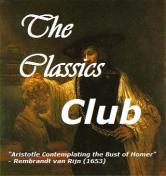Periodically, my public library, Boone County Public Library (that’s the Boone County in Northern Kentucky of the Greater Cincinnati area), has a book sale. My guess is that the books that they sell are the ones that have gone through the reading cycle and now don’t have a huge demand. Since my reading typically doesn’t depend on what’s currently popular, I almost always find something of interest to me when I check out the sales.
This past weekend, the Scheben branch held its sale. Yesterday afternoon, I wandered over to see what I might find. It’s interesting that the books for sale are not necessarily in any specific order as the other books in the library. I think they had them grouped roughly by genre. I thoroughly enjoy walking up and down the rows of books seeing what might catch my eye. My two middle kids were with me. They looked briefly at the teen section then went and sat in a corner with their iPods. They knew Dad might be a while, but they’re used to it by now.
Here is a rundown of the books that I found:
– The Reef by Edith Wharton: I have yet to read anything by this author; however, one of her short stories is on my Deal Me In list. That particular card has not yet popped up in the deck, yet. I don’t think this novel is as well-known as her novels Ethan Frome, House of Mirth, or Age of Innocence.
–The Winter of Our Discontent by John Steinbeck: I will probably read this very soon. I’ve gotten a sudden interest in Steinbeck.
–Nights At The Alexandra by William Trevor: I’ve discovered Trevor’s short stories this year and have greatly enjoyed them. This novella will probably get read in the near future, also.
–A Passage to India by E. M. Forster: Forster’s novel A Room With A View has been a favorite of mine for a long time; however, I’ve never read any of his other works. This one and Howard’s End seem to be the other novels of his that pop up on my radar from time to time. I think all of his novels have been made into Merchant/Ivory films.
–Anchored In Love: An Intimate Portrait of June Carter Cash by John Carter Cash: The fact that this book was written by Johnny and June’s son made it difficult to pass up- which reminds me that I have Johnny Cash’s autobiography on my shelf somewhere. I need to read that, too!
–Song Yet Sung by James McBride: My wife just read McBride’s autobiography The Color of Water for a book group. I’m not sure what she thought of it. Something about this novel sounds intriguing even though I was a little disappointed with his World War II novel, Miracle at St. Anna.
– And finally, I found a short story compilation that I am sure will get used for my 2014 Deal Me In project. Bernard Malamud, Dorothy Parker, James Thurber, Anton Chekhov, to name a few of the authors included.
The great thing about this book sale was that I got the above books for free! Each summer, BCPL hosts an adult reading program where adults read books, listen to music and watch movies from the library for “Library Bucks”. Over the past four summers, I have accumulated an entire drawer full of these. I can use them at the book sales or to pay fines (which I admit I occasionally have). It’s looking like I might not ever spend the Library Bucks as fast as I get them. I only spent five of them for these books!
Check out the website here of a great public library!





